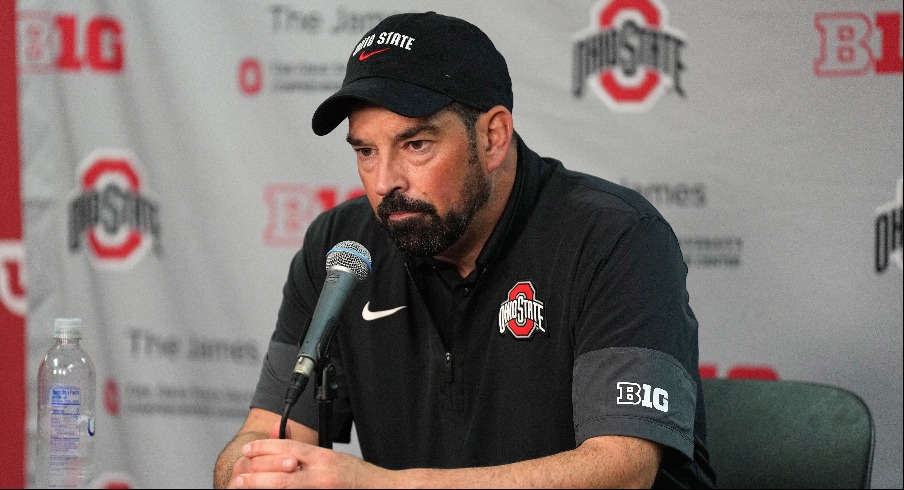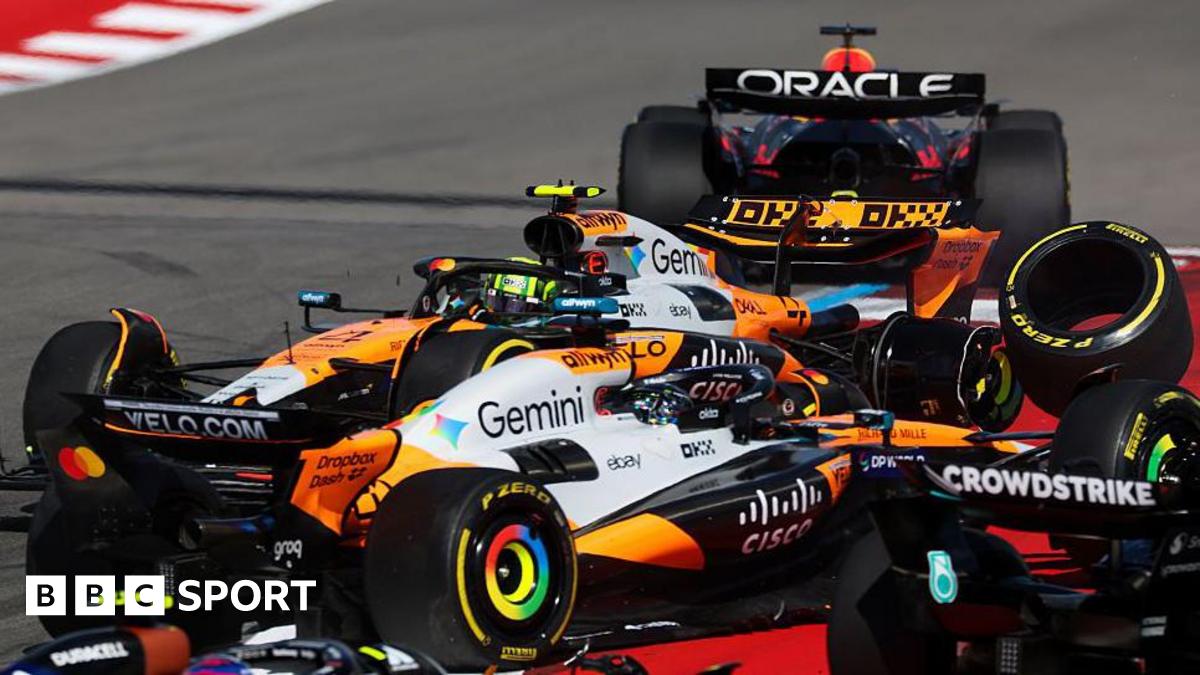CHARLOTTE, N.C. — A bitterly contentious federal court hearing between NASCAR and two race teams — Michael Jordan’s 23XI Racing and Front Row Motorsports — exploded Thursday, with U.S. District Judge Kenneth D. Bell warning that NASCAR could change forever if the sides do not settle before a Dec. 1 trial date.
“Everybody is going to get hurt if this thing goes a certain way,” Bell said. “If either party feels certain they’re going to win, they’re wrong.”
The preliminary injunction motion brought by the race teams aims to prevent NASCAR from selling the teams’ former charters before the case is resolved, and the judge said he would issue a ruling next week.
But the more notable development was the vitriolic rhetoric in both arguments and exhibits, which laid bare the gaping divide between the parties and showed how bitter the case has already become.
Thursday’s hearing was the latest as part of a joint federal antitrust lawsuit filed last October by 23XI Racing, Front Row Motorsports against NASCAR and its CEO and chairman, Jim France, alleging monopolistic practices. The lawsuit followed 23XI and Front Row electing not to sign an extension to the charter agreement that guarantees teams certain revenues and a starting spot in all 36 Cup points races. A charter is effectively equivalent to a franchise in most other team sports, with the highest charter recently sold for $40 million.
The teams presented evidence of text messages showing then-NASCAR chief operating officer Steve O’Donnell being concerned the France family was forcing through a deal that would represent a “1996 f— the teams, redneck, Southern, tiny sport.”
Scott Prime, NASCAR executive vice president and chief strategy officer, wrote to other executives that “we have all the leverage and the teams will almost have to sign whatever terms we put in front of them.”
Steve Phelps, then NASCAR president and now NASCAR commissioner, said one proposed deal represented “zero wins” for the teams and told executives to “pick a date and (teams) can either sign or lose their charters. It is that simple.”
Meanwhile, NASCAR presented exhibits of the teams’ anger toward the France family. 23XI co-owner and current driver Denny Hamlin was quoted in a text message saying, “my despise for the France family runs deep” and 23XI president Steve Lauletta said “Jim (France) dying is probably the answer” to getting better terms.
Jordan was also quoted in a text message saying NASCAR team ownership was a hobby for him because “only can play so much golf!” and called Joe Gibbs and other team owners who refused to hold out on the charter deal “f—ers” and “p—–s.”
“Teams are going to regret not supporting us,” he wrote.
Meanwhile, 23XI co-owner Curtis Polk — Jordan’s longtime business manager — was quoted in text messages as saying NASCAR was “boring as s—” and called a 2020 Richmond race “hard to watch.”
Polk also wrote in his notes that it was a “myth” that the “teams have no leverage” and said they would be stronger than NASCAR if they banded together.
Hamlin, Polk and Front Row owner Bob Jenkins were also cited as having used the word “boycott” in advance of a “major event.”
In response, NASCAR said, it came up with “gold codes,” which would involve using Xfinity Series and Truck Series teams to fill the field for a possible void. But the teams said the “gold codes” also included NASCAR eliminating the teams altogether and fielding its own cars.
NASCAR also presented evidence Jordan was far from suffering financially in NASCAR, with both he and Polk agreeing 23XI made a “reasonable profit.” When the two were discussing one possible financial shortfall, Jordan wrote they should just do it because “I have lost that much in a casino.”
But Kessler said, according to other teams’ financial filings, 75 percent of them made no profits last year.
NASCAR attorney Chris Yates said the teams’ argument came down to being upset over a failed contract negotiation, not an antitrust case, and they would be welcome to create a new racing series, but the judge interrupted and said he’d read the teams’ arguments that “your clients have made that impossible.”
Prime sent a message to O’Donnell in March 2022 expressing his worry about the “new golf model” after LIV Golf started up and said it was easy to see how our teams could come up with something similar.
To counteract that, the teams claim, NASCAR took steps to seal off pathways of creating an opposing series. That included entering an agreement with track owner Speedway Motorsports that said those racetracks could not host competing events.
It also made sure NASCAR teams could not race their Next Gen cars in another series, with $20 million in inventory for each team being able to only run in NASCAR Cup Series events.
But NASCAR argued it is under no obligation to let others race at its tracks and said the Next Gen protections were due to NASCAR investing tens of millions in its development.
NASCAR said it generously gave the teams a 62 percent increase in media rights revenues, but Kessler said that fell far short of what it took to operate a team.
Kessler said the teams asked for $720 million — $20 million per chartered car, because that’s what they agreed it cost to operate a race team before including driver salary — but NASCAR ended up giving teams $430 million.
When pushed on why the teams would want to keep investing in NASCAR and racing in such a bad deal, Kessler compared it to loving apple pie and still eating it if someone cornered the market on pies and raised prices.
“You’d pay more because you love it,” he said. “We want to make it better for everyone to afford the pie.”
Not all teams agreed the deal was a bad one. Spire Motorsports co-owner Jeff Dickerson was quoted in a text to Prime saying the charter offer was “seriously fair, all kidding aside.”
Bell said if the teams prevail at trial, “NASCAR is going to look very different,” and said “nobody knows what 2026 would look like.” He said some of the options available to the court would be forcing NASCAR to sell some of its racetracks and change the charter system altogether.
Kessler said the teams are “risking their business” to seek “fundamental structural changes” to NASCAR, not just getting more money. Bell agreed, saying the teams would be out of business if they lose the trial unless they were “welcomed back into the loving arms of NASCAR like a couple of friends after a drunken bar fight.”
But Yates said if the teams win, it could result in another split like the infamous Indy Racing League/CART fracture of the 1990s that crippled American open-wheel racing and has seen lasting ramifications to this day.
As far as the preliminary injunction itself, Bell seemed torn on whether to grant the teams their motion to deny NASCAR’s transfer of one charter to an unnamed interested party.
Bell agreed with NASCAR that the teams no longer have the charters because they did not sign the deal, but questioned why NASCAR couldn’t just transfer one of the four charters it has held back for expansion purposes.
Bell again urged the sides to consider the implications if they did not settle. He also said there has been “way too much sealed” in the case and warned both sides that everything would be unredacted at trial.
“This is going to be an open and public trial,” he said.
After the hearing, Jordan stood on the courthouse steps and told reporters he was fighting for all of NASCAR’s race teams — not just his own.
“When we first started this whole process, I’ve always said that I want to fight for the betterment of the sport,” Jordan said. “Even though they try to point out that we made some money, we had a successful business, that’s not the point. The point is that the sport itself needs to continually change for the better, for the fans, as well as for the teams — as well as NASCAR, too, if they understand that.
“I look forward to going down firing. If I have to fight this to the end for the betterment of the sport, I will do that.”
(Photo: James Gilbert / Getty Images)
Source link


